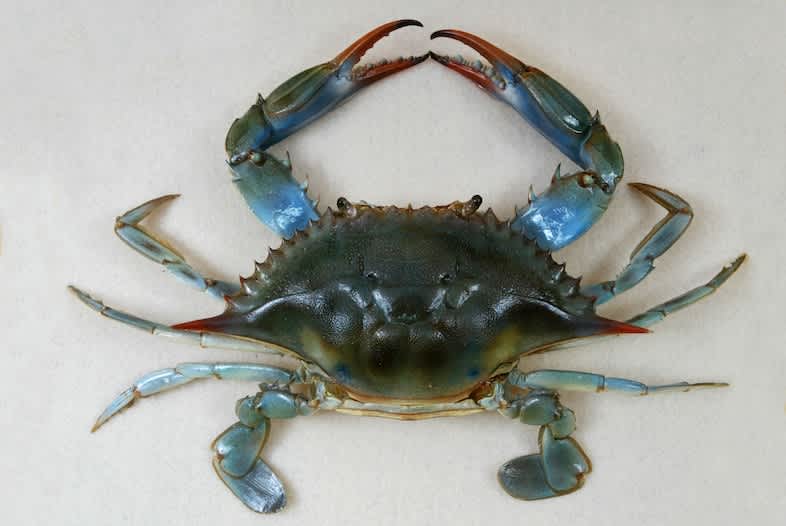Overgrown Crabs May Affect Marine Life
OutdoorHub Reporters 04.09.13

Automobiles and industrial facilities produce a high amount of carbon pollution, and most times it can end up in the ocean. While the effects are not immediately visible, one strange side effect is gigantically overgrown crabs. No, seriously. According to the Washington Post, scientists expect higher carbon levels in the ocean to speed up the growth of crab species and upset the balance between predator and prey.
Blue crabs for instance consume oysters, which in turn filter water and provide a home for many smaller species on their shells. Oysters are commonly acknowledged as a keystone species whose absence will have a noticeable effect on their ecosystem. Areas like Chesapeake Bay are highly dependent on oysters both commercially and environmentally. Because larger crabs will need to consume more oysters, the situation could lead to a potentially catastrophic upset. To make things worse, carbon pollution makes crabs grow faster while it slows down oyster growth.
A study conducted by researchers at the University of North Carolina found that oysters grew at a quarter of their normal rate in high carbon water while inversely, blue crabs grew four times faster. However, carbon pollution isn’t all that healthy for the crabs either. Experimenters found that crabs in high-carbon waters were often confused and in a daze. Biologists propose that the crab may eventually adapt if exposed long-term.
Any change in the marine ecosystem will leave many saltwater fish species at a disadvantage. Carbon pollution is known to have a detrimental on species such as trout and salmon. Whether reacting to the influx of carbon or the absence of oysters, fish and by connection fishermen and anglers, may be the ones to lose out.
Thankfully, the effects of carbon pollution are slow, and several states are already beginning projects on protecting native species like oysters.

